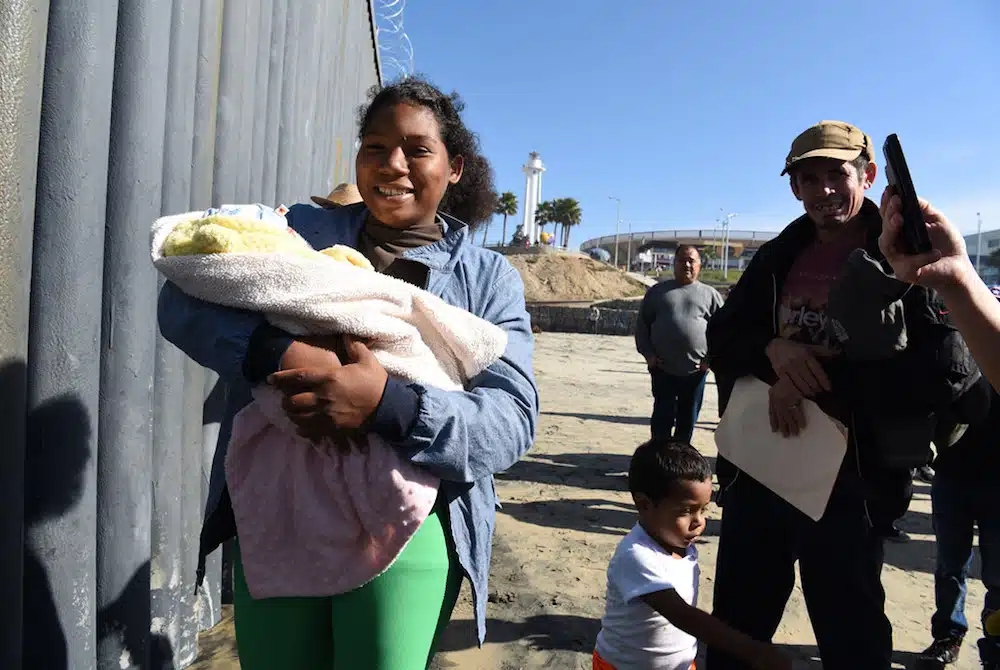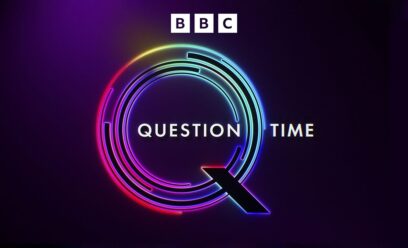The power of stories: What can we learn from the ‘migrant caravan’ narrative?
Posted by Katherine Maxwell-Rose on November 8, 2018
Image by Daniel Arauz from Flickr/Creative Commons
Much of the language surrounding the ‘migrant caravan’ travelling up from Honduras towards the US has had an alarmist and threatening tone; what can we learn from the way the narrative is being portrayed and how can we write a different story?
It’s hard to forget Nigel Farage’s ‘Breaking Point’ poster published in the run up to the 2016 EU referendum. Featuring an image of refugees crossing the Slovenian border with the text: ‘Breaking point; the EU has failed us all’, the campaign was immediately compared to Nazi propaganda and heavily criticised for its racist undertone.
The poster was a key fear tactic employed to instil anxiety in the nation ahead of the crucial vote on the future of the UK’s relationship with Europe. David Cameron’s own use of the term ‘swarm’ the previous year to describe refugees crossing the Mediterranean to seek sanctuary in the UK, many of whom were fleeing the Syrian civil war, is perfectly depicted in this image. The intended message: these people are coming to get us, their numbers are uncontrollable – and they will ruin our beloved country.
A message which was xenophobic, lacking in any factual basis; yet which proved to be powerful and effective.
Equally, extensive news coverage of the migrant caravan currently travelling up from Honduras through Guatamala into Mexico en-route to the US provoked intense political debate in this week’s US midterm elections. Images of thousands of people carrying their possessions and making the long trek north have been used by Donald Trump and the Republican Party to further entrench their anti-immigration rhetoric. Trump’s infamous border wall has never looked more relevant or urgent to those fearful of the US’s ability to protect its own borders. As Barry Bennet, one of Trump’s former campaign advisors said this growing news story was a ‘political gift’ to the president.
And he made good use of it. On Twitter he falsely claimed ‘criminals and unknown Middle Easterners’ had infiltrated the caravan; in rally speeches he talked of ‘bad hombres’, invasions and security threats. In his final stab, he released a campaign video featuring Luis Bracamontes a twice-deported immigrant convicted of murdering two police officers juxtaposed with footage of the caravan on the move; blatantly insinuating the migrants within it are all intent on criminal activity; a comparison even Fox News found too much to bear.
This line of argument is deeply disturbing. The base rhetoric is one which pro-immigration supporters must interrogate and refuse to accept. If both these campaigns show us anything it is the power of bold visuals and language to create a compelling, if inflammatory narrative, even when it is not rooted in the truth or facts. What’s clear is that the case against immigration is being made strongly and loudly.
It is therefore an imperative responsibility of those who think differently to carve out a better story which depicts immigration positively, something to be encouraged and celebrated. One which truthfully highlights the contribution millions of migrants have made to our country, one which reminds the UK population of its long history of welcoming refugees in need of safety, one which pulls down barriers rather than erecting them; one which reconnects us all to each other.
In the climate of a ‘hostile environment’ this isn’t easy; anger, bitterness and exasperation often dominant the discourse. Yet, to quote another famous political campaigner: ‘When they go low, we go high.’ In spite of the nastiness that the debate has been reduced to in the US, Michelle Obama urges campaigners not to sink to that level, but create a better conversation.
There is a different narrative. In fact, another story is playing out on the road up from Honduras to the US. A story of new family groups forming, people sticking together and helping each other out even when that means holding hands across a huge river separating two countries. An inspirational story of courage and determination; of people who are escaping poverty, violence and political upheaval, looking for a better life for themselves and the children they carry in their arms.
Ilhan Omar is another person writing a different story; yesterday she became the first Somali American, the first Muslim woman alongside Rashida Tlaib and the first refugee to be elected to the US House of Representatives. In her victory speech she said: ‘When people were selling the politics of fear and division and destruction, we were talking about hope. We were talking about the politics of joy’.
In the United States and on our own soil, there are lots of other stories which ‘go higher’; and lots of ways to tell those stories. These compelling narratives of social cohesion, inclusion and friendship already exist in our communities. The arguments are just as persuasive but it’s up to those of us who want to start a different conversation about migration to be the ones to draw out, craft and promote them.



